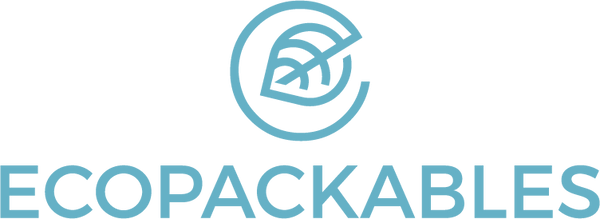Extended Producer Responsibility (EPR) is reshaping the packaging industry in 2025, and the momentum shows no signs of slowing down. Brands, distributors, and e-commerce businesses must now navigate a complex patchwork of state and international laws that determine how packaging is designed, labeled, collected, and recycled.
Why EPR Matters More Than Ever
EPR laws shift the responsibility for packaging waste from municipalities to the producers that create it. That means if you sell mailers, boxes, or other packaging into a regulated state, you may be on the hook for collection, recycling, and reporting costs.
Beyond compliance, these laws are driving innovation in sustainable packaging. Brands using recyclable mailers, compostable films, or boxes with high post-consumer recycled (PCR) content will not only save on EPR fees but also appeal to eco-conscious consumers.
2025 U.S. State Updates
Oregon
Oregon’s Recycling Modernization Act officially launched on July 1, 2025. Producers were required to submit 2024 data by March 31, 2025, and expanded services are now rolling out statewide. This includes investments in recycling infrastructure and improved truth-in-labeling standards.
Colorado
Colorado’s EPR program is one of the most comprehensive. As of July 1, 2025, producers cannot sell or distribute covered materials in the state unless they are registered with the Circular Action Alliance (CAA). Producers also submitted 2024 packaging data by July 31, 2025. Fees begin in January 2026, based on the CAA’s amended program plan submitted in June.
Maine
Maine’s Department of Environmental Protection finalized its rules in December 2024. In June 2025, the legislature passed LD 1423, excluding certain medical, cosmetic, hazardous, and public health packaging from the program. A Stewardship Organization will be selected by April 2026, producer registration will open in Spring 2026, and reimbursements to municipalities begin in October 2027.
California
California’s SB 54 continues to be the most ambitious EPR law in the U.S. While producers were required to register with the CAA by July 2024, the state’s fee structure is still being finalized. In May 2025, Governor Newsom paused the regulatory process and directed CalRecycle to restart rulemaking. On July 1, 2025, CalRecycle issued new draft regulations, but statutory deadlines remain in place: program implementation in 2027, interim recycling targets in 2028 and 2030, and full recyclability or compostability by 2032.
Washington & Maryland
In 2025, Washington and Maryland joined the list of states with EPR packaging laws, bringing the U.S. total to seven states (Oregon, Maine, Colorado, California, Minnesota, Washington, Maryland). Both states are currently developing rulemaking processes and implementation timelines.
International Developments
United Kingdom
The U.K. will launch its national EPR scheme in October 2025. Producers will pay fees based on the weight and recyclability of their packaging, with significant cost increases projected for glass packaging. This has already sparked debate over whether the new rules could unintentionally make plastic more cost-competitive than reusable glass.
What This Means for Brands
If you sell into regulated states, you must:
-
Register with the appropriate PRO (such as CAA in California and Colorado).
-
Submit required data on packaging weight, type, and recyclability.
-
Update your labeling to align with new “Truth in Labeling” standards, particularly in California.
-
Design with circularity in mind — recyclable mailers, compostable films, and recycled cardboard boxes will reduce costs under eco-modulated fees.
Wrapping Up
Extended Producer Responsibility is no longer a future concept. It’s here, and deadlines are arriving fast. While requirements differ across states, the direction is clear: brands must transition to sustainable packaging solutions that are recyclable, compostable, or made from post-consumer recycled content.
At EcoPackables, we make this easier by offering a wide range of sustainable packaging options, from recyclable mailers and honeycomb bubble mailers to compostable films and recycled cardboard boxes. Whether you’re preparing for Colorado’s reporting rules or California’s recyclability labeling standards, our team can help you stay ahead of compliance while building a greener brand.

